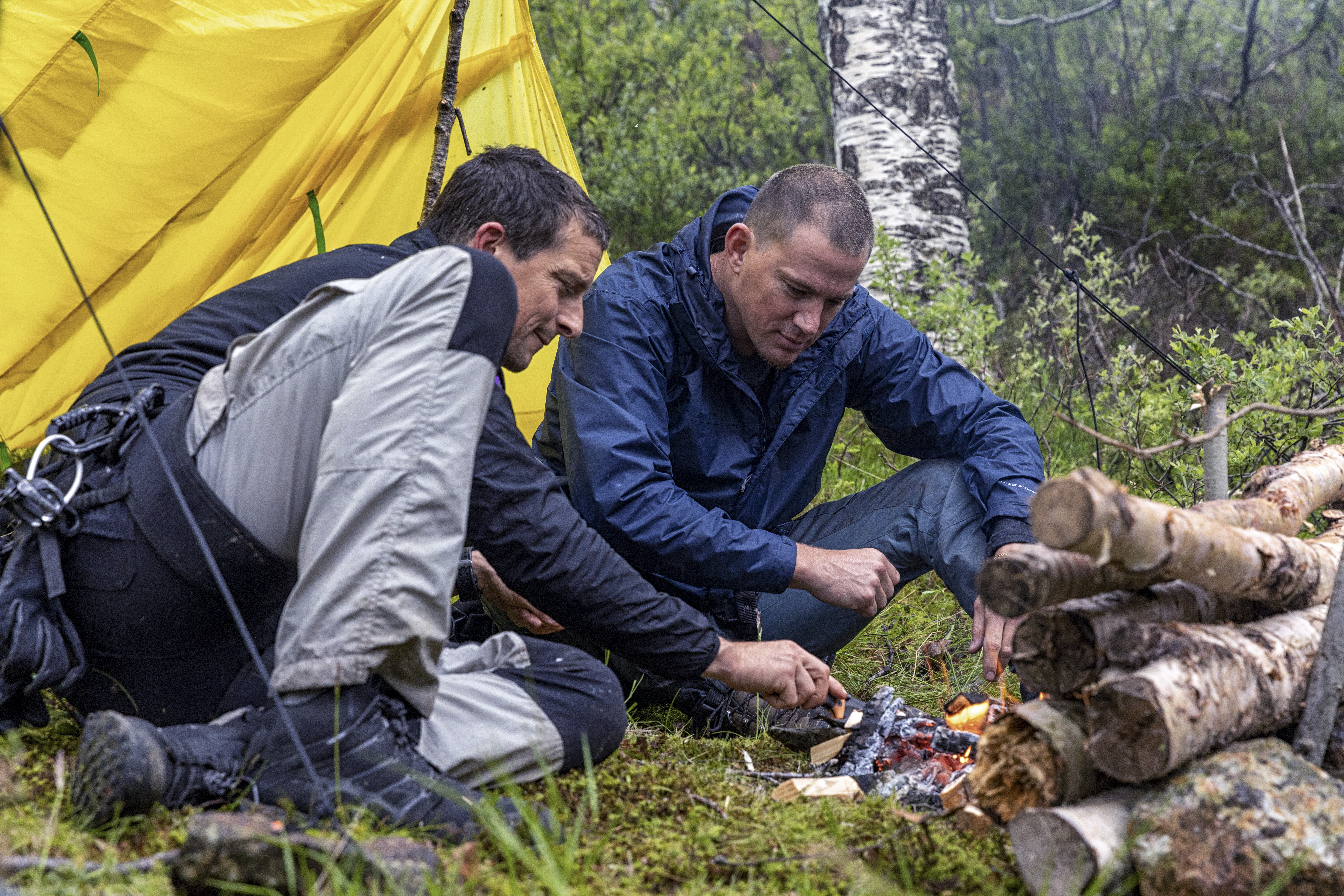Bear Grylls is a straight-up doer. No excuses. No “I’d rather be on the couch.” The man freaking goes for it and has an adventure resume that’s virtually unmatched (collecting some gnarly injuries along the way). He’s been the world’s most famous survivalist for the better part of two decades now, and he doesn’t seem to be slowing down much. The adventures keep coming and — just as importantly — the thirst for life remains strong. Whether on TV, in his writing, or on the phone for an interview, he presents a man who is fully engaged in the multi-sensory experience of seizing the day.
This week saw the premiere of season five of Bear’s celebrity survival-based show, Running Wild. The project, which has moved homes a few times and now seems to have found a perfect fit at NatGeo, sees the bold adventurer testing the mettle of his famous friends — from Brie Larson to Joel McHale and Channing Tatum to Cara Delevingne. The dynamic created is an endlessly fascinating and deeply enjoyable one, as viewers learn that famous people are, to generalize, just like us. They’re not as brave or fearless as they seem on screen and they need Bear Grylls to guide them in their wildest exploits just as much as John Q Viewer might. The result is a show with a surprising amount of humor, genuine thrills, and deep sincerity — even more satisfying that Bear’s original Man v. Wild series.
With the Brie Larson episode of Running Wild dropping recently and the show set to launch on Disney+, I spoke with Bear about survivalism, his passion for stewardship, and how regular people can live lives of adventure.
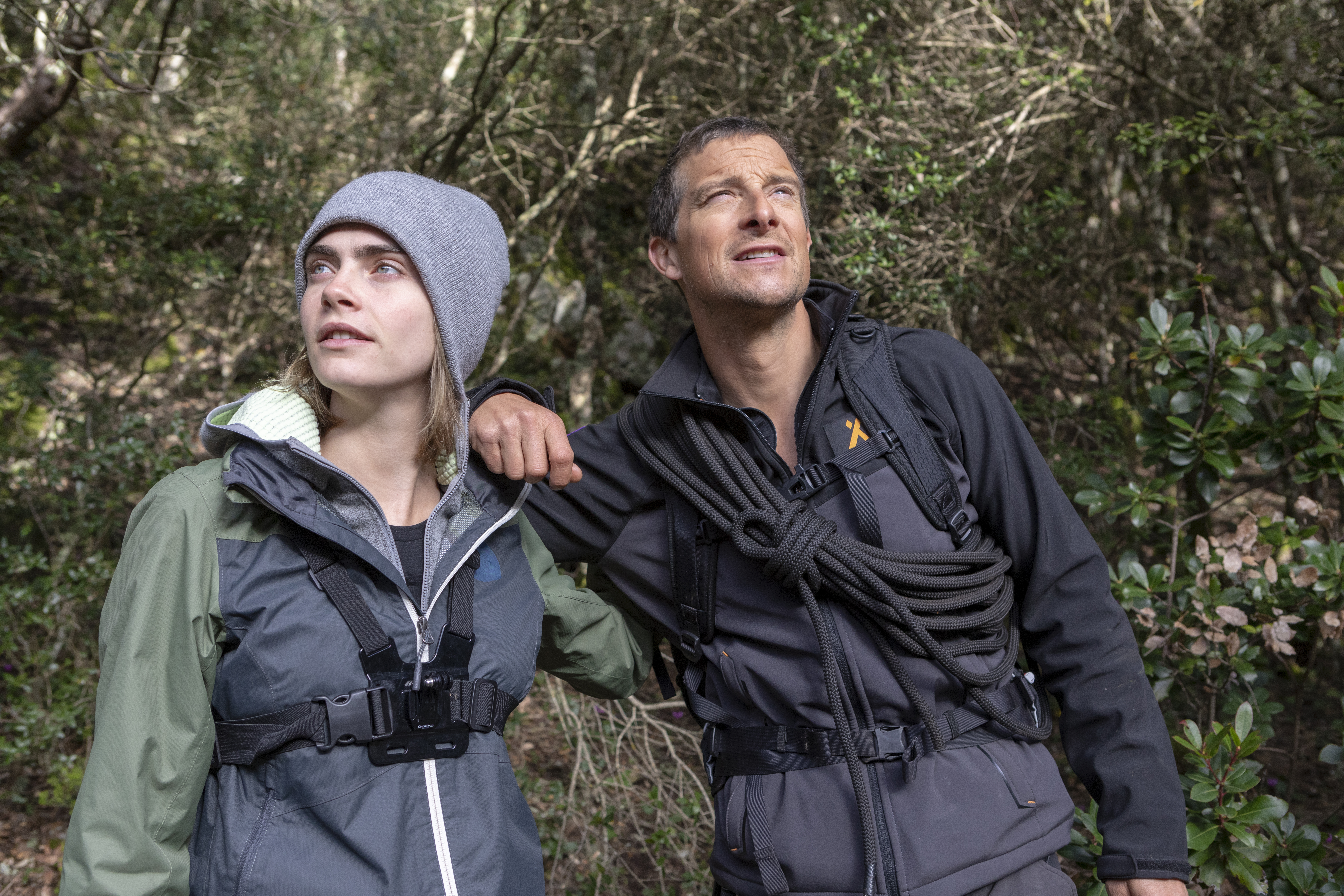
As someone who has personally been very much into survivalism and exploration, as I watched through this season I witnessed this human desire to be part of this moment of kind of pushing ourselves and our relationship with the natural world. You’ve tapped into that better than literally anyone on earth, so where do you think that that comes from? Right now humans are living very domesticated lives but they also long to “go walkabout” don’t they?
It’s so interesting, isn’t it? I think you’re right. I think in a way, the more sanitized society becomes, the more our innate, ancient hunger for the unpredictable, the uncertain, and the wild becomes, and the more appealing it is, even if it’s just to watch it on the TV. You have to go through thousands and thousands of years of wild DNA to suddenly reach this kind of perfect and clean and neat and technology-driven place we’re at. I think it’s pretty universal — especially in young people — for people to want to know what would happen if they’re tested. Where would they be if it all was taken away from them?
The “do I have the stuff?” type of mentality.
I think that’s universal, and I see it so much in the Hollywood stars, as well. As you kind of get more cultivated and well looked after, there’s still a hunger that says, “But actually if it was all taken away, what am I made of?” And so many of these stars, they don’t need the money or the fame. They want the experience, they want the raw, muddy, gritty, in-depth experience of big push in a really wild, remote part of the world — while at the same time knowing that they’re with good people and that they’re safe and they’ll be encouraged and they’ll be empowered and at the end of it, they come out really proud of themselves. That’s something that money can’t buy in the modern world, and I love that part of the show.
I feel like you’re essentially offering this ultimate moment in the “experience economy,” and it’s one that they’ll probably tell at their own dinner parties, right? It feels like something when everyone you know has already gone to the luxurious hotel, what’s the story you tell? It’s about eating the witchetty grub in Australia or sliding along a rope above crocodiles in Panama, or whatever.
More and more, people are hungry for experience. It’s become a little club, a Running Wild club of incredible people, and there’s a pride when I see people kind of get together, who plan it, and then get to the end and say, “Wow, we did this!” and they’re really proud of what they’ve done, and they should be because the journey’s are hard. This season, we went to some really tough places that really pushed these guests. At the end of each one, I always give them a hug and I just go, “Do you know what? Genuine respect. Good-for-you. TV cameras aside, what you’ve done is really remarkable, and you should be really proud of yourself.” And they say, “Yeah, do you know what? Yeah, I am proud,” and again, I love that part of my job.
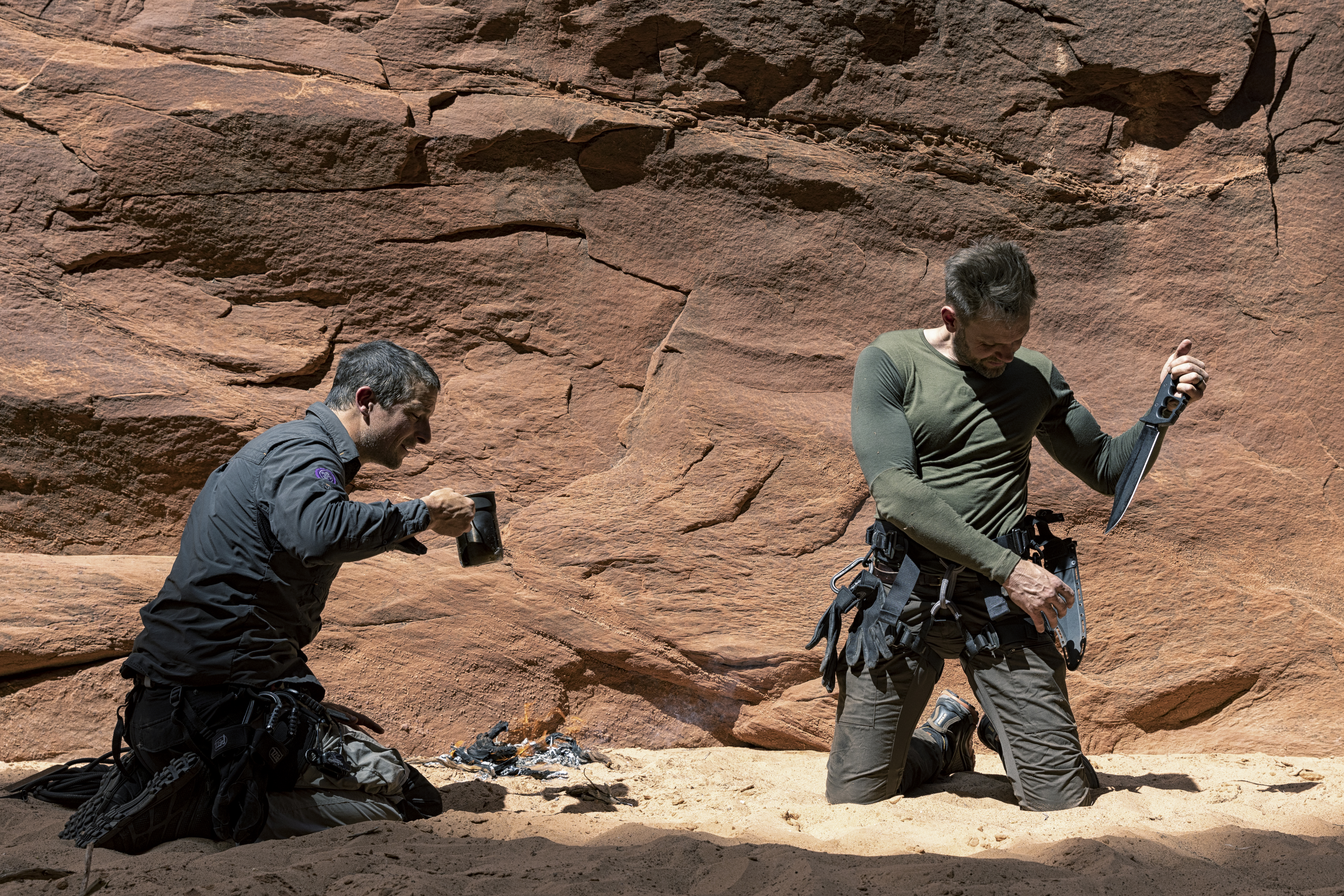
Has there been someone who has really been so gung ho and wanted to go farther and farther where you’ve really had to think to yourself like, “Okay, how do I push this person?”
Well, it’s interesting because this was the first time we had a guest come back for a second journey. Channing Tatum did season one of the show, and now he’s back for season five. I said to him, “Mate, you’re no longer a rookie now. I’m going to really push you, and I don’t want to just give you an experience. I actually want to train you so you can go do some of this stuff with your family, with your friends.”
That episode was much more about testing him and equipping him with proper skills that he’s going to remember, and getting into his subconscious a bit more with those skills. He did that and he loved that sort of spirit, and he did really well, but it was a different dynamic again for me. To take somebody to the next level, and what a cool guy to do it with — he’s become a good friend over the years, and he should be proud of himself.
If there’s a person reading who’s not famous enough to get your invite, how do they… How do you encourage people to see the world and to push themselves in ways that are safe but also get them out of their comfort zones in a way that they can really feel fully alive like your guests do?
The thing is, adventure starts with a state of mind — a willingness to do the difficult and embrace the uncertain — and you don’t have to go to the other ends of the Earth to do that. We all have a wilderness that is actually pretty close, even if you live in the city, you don’t have to go too far.
We’ve started an adventure theme park in the UK where people can dive with sharks, and free-fall in a wind tunnel, and learn all the climbing and escape rooms and high ropes and the shooting, and it’s massively popular because it’s tapping into this thing you see something on telly, but you actually want to experience it in a safe way and a fun way yourself.
Do you feel like as people cultivate this interest and as the show has become more and more popular — and obviously your career now has spanned a couple of generations — do you feel like you’re also seeing a deeper desire in people that you meet to be nurturers of the environment, to be stewards for our planet and to think of their experiences in terms of conserving wild spaces?
I think all of us have changed and adapted over the last decade or so. I want the sentiment to all of our shows, not just Running Wild, but all of our — whether it’s Hostile Planet or our Amazon series or whatever — it is all about showing how amazing, how incredible, but also how fragile and vulnerable the great wildernesses on our planet are and what people can do if they care to protect it. Sometimes, the best way of doing that is to take people with you and the camera, and show that this is what’s happening in this place, and this is how beautiful it is, but also how on the edge it is, and I see that as a huge dynamic shift in how we approach our shows.
In the old days, it was like “Get in and go crazy,” now it’s like, “Come with me, let me show you, but tread quietly.”
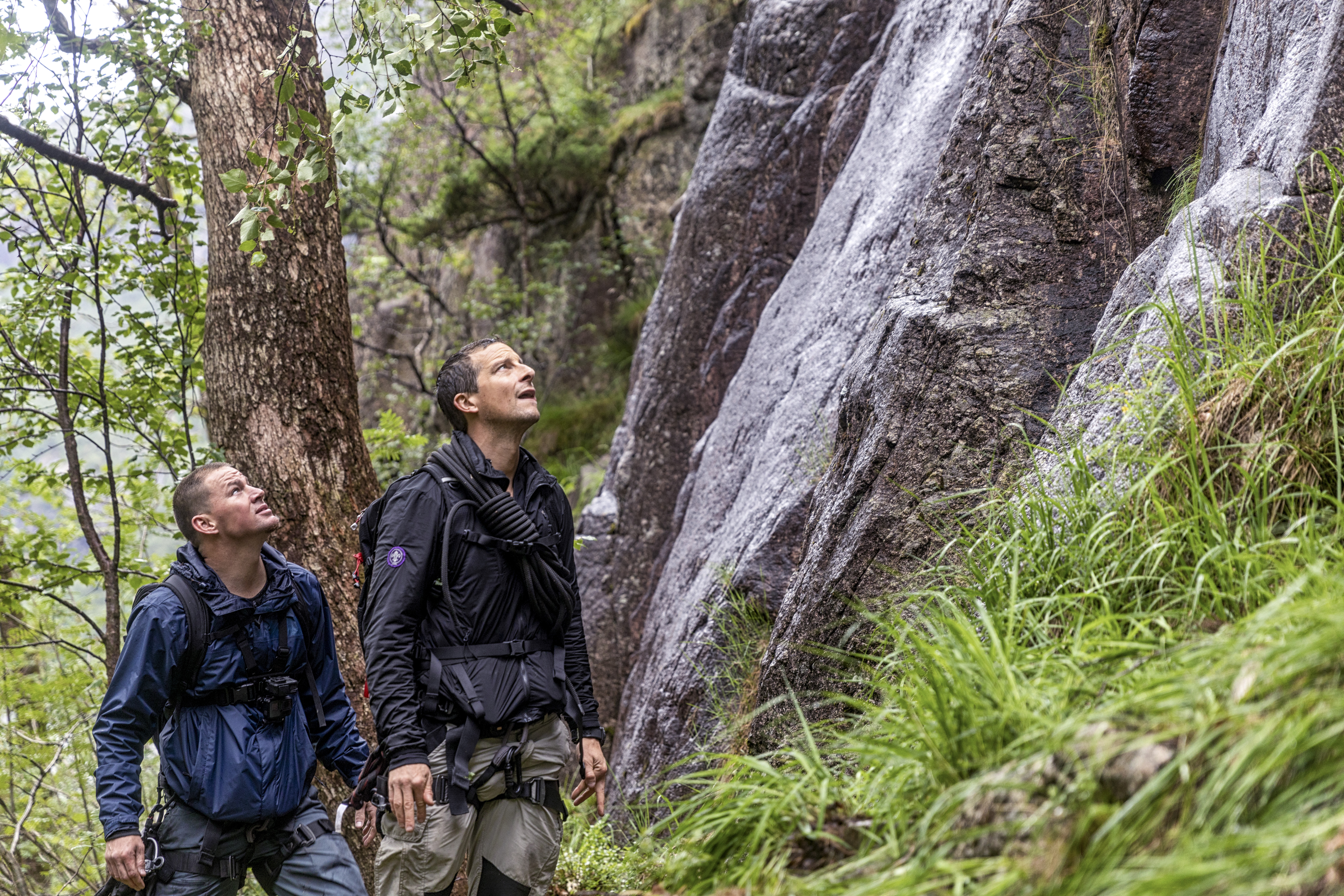
One of the things that I feel like you’ve always done well and are continuing to emphasize is cultivating our communal love for wild spaces. And watching this season, for your guests, it seems like of all the things that they’re the most on board with — it might be unusual for them to eat a grub or you might push them with some of the physical challenges — but the love for wild space seems to be… In many ways, that seems to be your life’s work right now, right?
Well, I think it’s what people really care about, especially with a lot of these stars as well. They want to see what people are talking about and that’s beyond just learning wilderness skills or being tested and facing difficult things. It’s actually about seeing some of the realities of what’s going on in wild places for themselves, close up. Look at the journey I did with Obama. It was all about seeing the reality and the effect of climate change close up. I’ve just done a journey with Prime Minister Modi of India. His whole motivation is “I want to show people how spectacular the wilderness of India is, but how we, together, are going to clean up India, we’re going to ban plastics.” I love that.
If I can facilitate and be a part of the big decisions in society, I really want the show to stand for that, and so many of these stars want to be a part of that as well.
Do you feel like working with stars, which is obviously a different format than you’ve done before, does that help widen the platform a little bit just because they have so much access to the mainstream?
Of course! Every time you do another episode, you bring a whole new demographic of fans. One week, people are mostly into Brie Larson in all the Marvel movies, and the next week, you’re accessing Cara Delevingne’s 50 million Instagram followers, but the principles are always the same about friendships, bonds in the wild, pushing yourself, and experiencing the power of nature.
I love that. Is there a place where if I was at a dinner party with you and we were just pals, that you would encourage people to go? I always tell people to visit Madagascar or Australia’s Northern Territory if they want to see true wild. Are there places where you send people that you’re in love with, that you love to talk about?
I’ve learned a lot over my life about how unforgiving some of the real extremities can be when it comes to Siberia in wintertime or the Sahara in the summertime. I think I’ve left those places with an appreciation of how beautiful our planet is and, by contrast, how lovely temperate climates and conditions and mountain ranges and summer are. But the message of Running Wild is: You don’t have to go far. We all are actually so lucky, especially in America. Sometimes Americans don’t realize how lucky they are and how such fantastic, spectacular, wild, remote, diverse wilderness is right here on your doorstep, and all you have to do is get out and experience it and enjoy it and try to protect it.
When I watch the show, I can envision people on their couches saying, “Okay, but now I want to plan something for this weekend. I want to do a hike that feels like it makes me breathe heavily.” Has that become part of the goal in many ways?
A hundred percent. We all have an adventure compass inside us that wants to experience what the outdoors and the wild can do for us, and as I say, you don’t have to climb Everest, we all have our Everest, you just got to get out of there and challenge yourself with people you really care about — whether it’s your son or your daughter or your dad or your friends from college — and take some risks and make some mistakes. Sure, plan well and be prepared, but making mistakes is what adventure is, isn’t it? That’s how we grow.
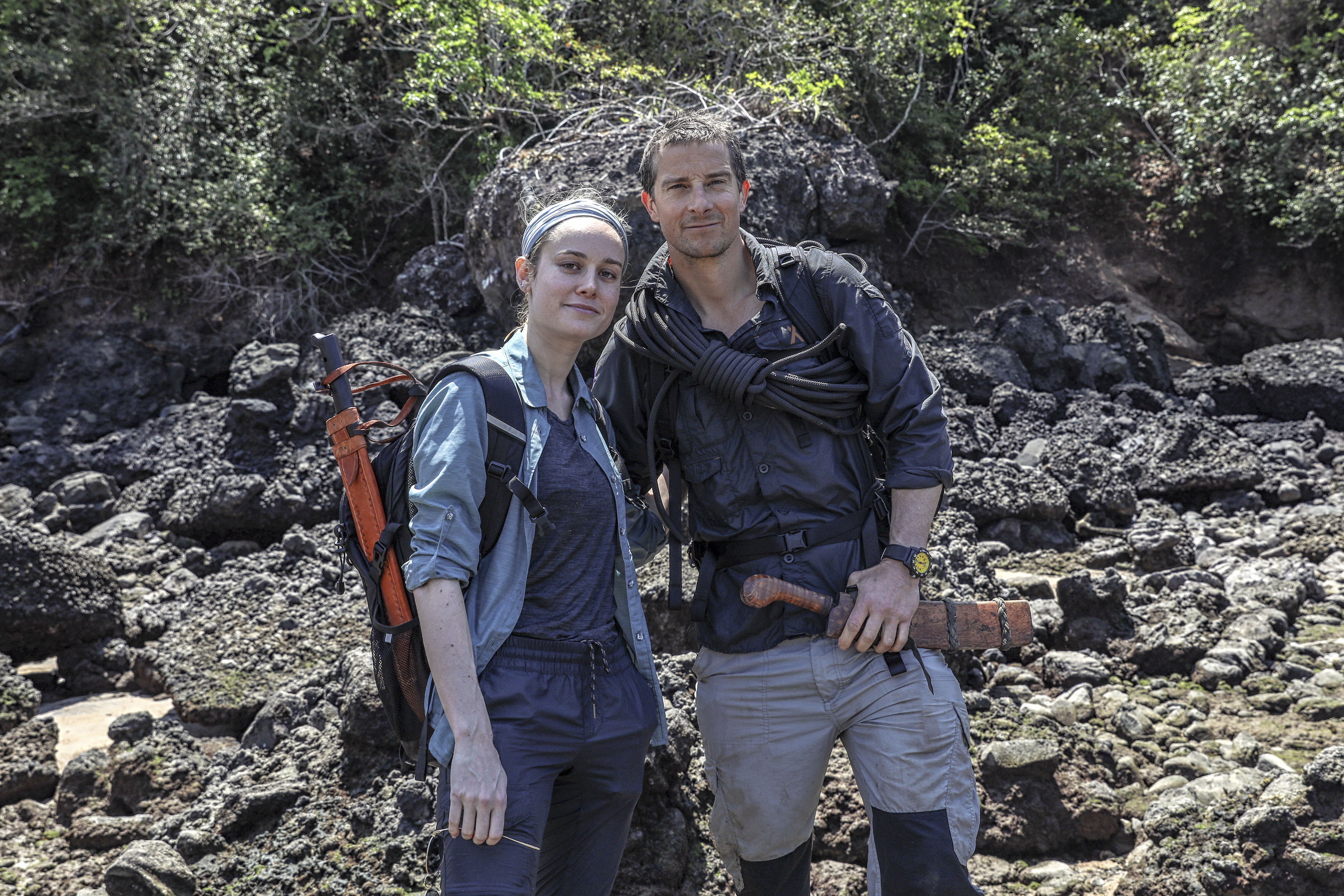
What if you meet someone who really does want to go to that furthest place — wants to plan a trek across the Amazon or wants to do a first descent or something like that? Is there advice that you give people who are trying to plan truly the adventure of a lifetime, whether it’s a year off in a van around the United States, or, like I say, a trek across the Amazon?
I think that the key is action. It’s all about action and taking one small step. I do think it’s important to be prepared and to plan things well and to not maybe take something from cold to boiling, but climb other stuff and build the skills organically and naturally and push yourself to make a million mistakes where the mistake isn’t catastrophic because that’s how you gain experience. My experience is the sum of all my near misses, which are many, but half of them — this is where you’re not going to lose your life but you will build up your experience, your skills, your ability to manage situations.
What is that great quote T.E. Lawrence said, “The dreamers of the day are dangerous men, because they may act upon their dreams with open eyes.” Wait, it’s “All men dream: but not equally. Those who dream by night in the dusty recesses of their minds wake up in the day to find it was vanity, but the dreamers of the day are dangerous men, for they may act their dreams with open eyes, to make it possible.”
I’ve always loved that quote.
That’s the kind of sentiment. You just got to take action and make things happen, and I love encouraging that in people, whatever their dreams are.
